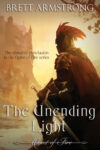It’s Not The Holiday You Think It Is
 October 31—what’s the first thing that comes to your mind?
October 31—what’s the first thing that comes to your mind?
In all likelihood, it’s Halloween, with it’s spooky traditions and candy goodness. That is completely understandable because it’s the holiday that gets all the press. Who hasn’t seen scary commercials and trailers for the latest horror movie or store displays luring customers to buy this goody or that accessory?
But in truth, October 31 marks something vastly more important.
Nearly 500 years ago, God moved across Europe through courageous men and women to restore to the church the truth of the Gospel, the primacy of the Word of God, the importance of expressing faith in great songs and music as well as a renewal of the personal walk of a believer with his Lord. This is the REFORMATION! (First Evangelical Free Church in Fullerton, Newsbreak, 2011)
And the holiday has become known as Reformation Day, most often celebrated as Reformation Sunday on the Sunday prior to October 31.
In part here’s what Wikipedia says:

According to Philipp Melanchthon, writing in 1546, [Martin] Luther “wrote theses on indulgences and posted them on the church of All Saints on 31 October 1517”, an event now seen as sparking the Protestant Reformation.
According to an article at the web site Sunday School Lessons, Luther’s concerns emphasized two key points: justification by faith and the priesthood of all believers.
I have to admit, I take for granted those tenets of the faith. After all, Scripture makes them so clear … except, the common ordinary people of Luther’s day didn’t have Bibles. They depended on their church leaders to tell them what was in God’s word.
A corrupt church and priests interested in lining their own pockets weren’t concerned with trivialities such as what the Bible actually said, so salvation by faith alone was not a concept widely known. The idea of “no distinction [between believers] … but Christ is all and in all” was for all practical purposes unheard of.
Chaplain R. Kevin Johnson explains it this way in his article “Reformation Day”:

[Martin Luther’s] aim was to protest the assertion by the Church that God’s favor could be gained by the purchase of indulgences. Luther taught that salvation and the remission of sin are available by grace through faith in Christ alone and that no monetary offering or good deed would or could achieve the same result. With this bold act of conviction, Luther set in motion a full revolt against the Church known as the Protestant Reformation.
Luther challenged church doctrine by teaching that all Christian believers have both the right and responsibility to carry forth the gospel (a principle we call “the priesthood of the believer”). To prove his point, Luther looked to the scriptures and cited 1 Corinthians 4:1, “Think of us in this way, as servants of Christ and stewards of God’s mysteries;” Revelation 5:10, “you have made them to be a kingdom and priests serving our God, and they will reign on earth;” and 1 Peter 2:9, “But you are a chosen race, a royal priesthood, a holy nation, God’s own people, in order that you may proclaim the mighty acts of him who called you out of darkness into his marvelous light.” Luther also taught that no extra-biblical means was necessary to obtain divine truth.
in 2011 Justin Taylor wrote a great post chock full of resources for those who wish to learn more about Martin Luther and his part in the Reformation, but most powerful I felt was his closing paragraph:
Luther—like all of us—was a flawed man with feet of clay. He didn’t see or say everything right. But God used him to recover the gospel and to reform the church, and it is fitting to thank God for this remarkable man and God’s grace to him and through him.
Perhaps Reformation Day is the most pivotal holiday ever that few remember or celebrate. Not that churches don’t acknowledge it or perhaps even do something special on Sunday to commemorate it. But it doesn’t quite crowd out Halloween, now, does it?
Not that I’m suggesting Christians should have “our holiday” and non-Christians, “theirs.” But it seems pretty clear, if Christians don’t celebrate the Reformation, no one else will.
























Yes, Becky – thanks for posting this. I learned about Reformation Day when we starting attending a PCA church.
I’ve heard third-or-fourth hand about churches having All Saints Day dress up parties instead of Halloween, etc…but how would one celebrate Reformation Day? Run around nailing posters to walls (snarks). It’s about doctrine, and that’s not easy to format a celebration around.